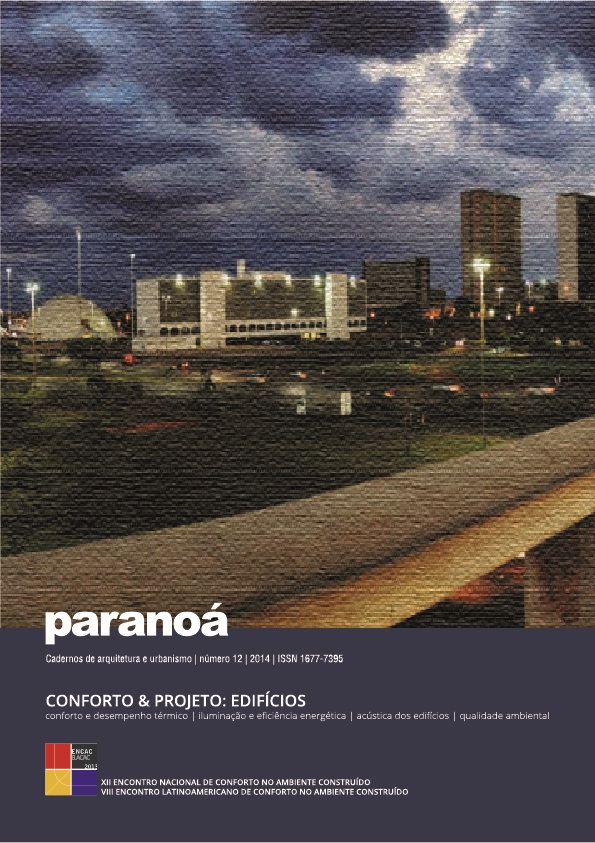Indireta resfriamento evaporativo: previsão do comportamento térmico em cidades brasileiras
DOI:
https://doi.org/10.18830/issn.1679-0944.n12.2014.12211Keywords:
Thermal performance, Indirect evaporative cooling, Indoor temperature prediction, Tropical climateAbstract
In this paper, we present the indoor temperature predictions of a building provided with an indirect evaporative cooling system as a means of passive cooling (Vivienda Bioclimática Prototipo -VBP-1) in four cities in northeastern Brazil: Teresina, Petrolina, Fortaleza and Natal. The VBP-1 was designed and built in Maracaibo, Venezuela (latitude 10°34’ N, longitude 71°44’ W, elevation of 66 m above sea level) and monitored from February to September 2006. Predictive formulas that represent maximum, average and minimum indoor temperatures were developed based on the analysis of the thermal performance of the system and the data temperature recorded during part of the whole monitoring period. The formulas were validated against measurements taken independently in different time periods. This paper evaluates the applicability of these formulas to analyze the thermal performance of the system in different climatic conditions to those used to generate them. The cooling system efficiency is evaluated in terms of its capacity to reduce the indoor average temperature relative to outdoors and of the percentage of time in thermal comfort are achieved compared to outdoor comfort conditions. The results show significant cooling capacities to reduce indoor temperature: 1.8°C in Teresina, 2.1°C in Petrolina, 1.1°C in Fortaleza and 1.4°C in Natal, and consequently achieving comfort conditions in all cases, most of the year.
Downloads
Downloads
How to Cite
Issue
Section
License
Autores que publicam nesta revista concordam com os seguintes termos:
- Autores mantém os direitos autorais e concedem à revista o direito de primeira publicação, com o trabalho simultaneamente licenciado sob a Licença Creative Commons Attribution que permite o compartilhamento do trabalho com reconhecimento da autoria e publicação inicial nesta revista. http://creativecommons.org/licenses/by/4.0
- Autores têm autorização para assumir contratos adicionais separadamente, para distribuição não-exclusiva da versão do trabalho publicada nesta revista (ex.: publicar em repositório institucional ou como capítulo de livro), com reconhecimento de autoria e publicação inicial nesta revista.
- Autores têm permissão e são estimulados a publicar e distribuir seu trabalho online (ex.: em repositórios institucionais ou na sua página pessoal) a qualquer ponto antes ou durante o processo editorial, já que isso pode gerar alterações produtivas, bem como aumentar o impacto e a citação do trabalho publicado (Veja O Efeito do Acesso Livre).















